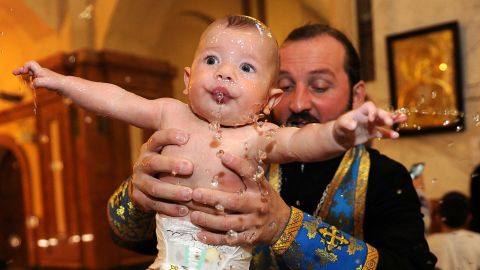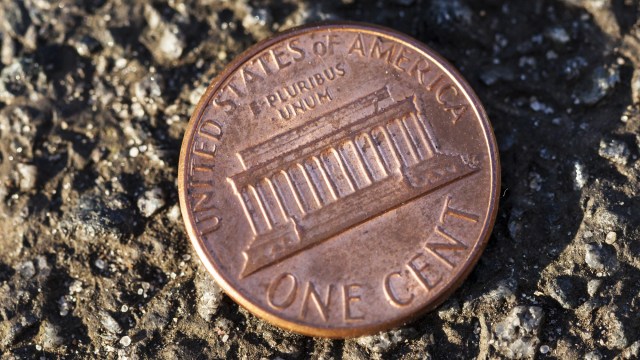Did Religion Help Our Brains Evolve?

Aldous Huxley is remembered predominantly for dystopian literature. ‘Brave New World’ is as ubiquitous as ‘1984.’ Yet Huxley contributed much to the advancement of religion and spirituality. Whereas Orwell focused on the politics of his day, Huxley’s work in psychedelics and mysticism led to fascinating works: The Doors of Perception, The Perennial Philosophy, and his final novel, Island.
Huxley was no casual mystic. Raised by a schoolmaster, his grandfather was a famous zoologist while his brother and half-brother were renowned biologists. His spiritual musings were tempered by the flesh and blood realities of this world.
In Island—Huxley’s attempt at a more utopian vision than Brave New World—journalist Will Farnaby lands on the fictional Pala. He is there to convince the island’s queen to surrender the nation’s rich oil reserves to his sponsor, Lord Joseph Aldehyde. Farnaby quickly learns it will be no easy task in a tropical locale where mynah birds speak Buddhist philosophy and doctors mix medicine with mythology.
The talk turns metaphysical during a hypnotherapy session with a local named Susila. At one point Susila rejects one of Farnaby’s questions, claiming the answer resides in the realm of the ‘neurotheologians.’ She explains them as,
Somebody who thinks about people in terms, simultaneously, of the Clear Light of the Void and the vegetative nervous system. The grown-ups are a mixture of Mind and physiology.
Neurotheology was born.
The term, also known as spiritual neuroscience, is a modern attempt of rectifying distance between neurochemistry and religious experiences. In many ways this is a chicken-or-egg debate. Did the human brain evolve to experience spirituality or were those yearnings what shaped our brain? Recent research hints at the latter.
One study investigated nineteen devout Mormons—a very small sample, it must be noted. Researchers pulled from William James’s classic, The Varieties of Religious Experience, to define the experience: euphoria, noetic insight, feeling at one with oneself and others. This study follows many other similar attempts at locating the chemical correlates of bliss and rapture, as well as hormones triggering contemplation and mindfulness.
Researchers hoped to isolate the experience in order to replicate it more widely. As they write,
A neuroscience of religious and spiritual experience is a key step for understanding the motivation of religious behavior and health effects of religious practice across communities. We selected a Mormon population for studying subjective religious euphoria because of the centrality of charismatic religious joy (colloquially, “feeling the Spirit”) in both Mormon theology and practice, and the high frequency with which adherents to the faith report experiencing these phenomena in their daily lives.
Each young adult (mid-twenties to thirty) was given eight-minute long tasks associated with their devotional discipline, such as reading passages from the Book of Mormon or viewing LDS quotations. While there is no ‘religious center’ in the brain, the self-reported spiritual experiences activated distinct brain regions, including the nucleus accumbens—our brain’s reward center—and the frontal lobes, associated with an ability to form social relationships. These lobes serve as the brakes of the paralimbic system, calming our innate animal emotional responses with reason and logic, which is important when dealing with others in a social setting.
This study led researchers to speculate that the origins of our modern social structure were aided thanks to a spiritual impulse. While this yearning does seem inherent, archaeologist Steven Mithen would likely disagree that religion created the impulse. He points to the neurological origins of religion in cognitive processes dealing with technical, social, and natural history—three once-separate domains that united roughly forty thousand years ago.
Our ancestors’ ability to not only create but manipulate tools for other usages offered a giant cognitive leap forward. Our relationship to the environment shifted. No longer were we restricted to a few simple stone tools; our library of instruments, and therefore ideas of how to use those instruments, expanded greatly. Rituals were swept up in this wave of information; our gods began to take on a distinctly human form. As he writes,
If there was nothing about supernatural beings which conformed to intuitive knowledge of the world, the concept of them would simply be too difficult for the human mind to grasp.
It is often argued that morals are meaningless without religion. Yet as journalist Ta-Nehisi Coates recently admitted regarding atheism, non-belief is more likely to inspire an appreciation of the moment—and the people you’re surrounded by. Anthropologists have shown at length that our forebears form communities and bond for reasons of survival, not metaphysics.
This does not discount religion’s role in our social evolution, however. While fundamentalist religion is dangerous to culture—the appointment of Betsy DeVos as secretary of education is one such instance—communities formed around ritual have played a primary role in our understanding of how societies operate. One need not be a believer to recognize the wonderful charitable work by religious organizations, nor question its beneficial impact on the psychology of mankind.
Neurotheology is considered a growing field, though it suffers from the same trappings religious institutions have long endured: if you’re only looking to justify previously held beliefs, the science will most likely not be on your side. If you have to discard what doesn’t fit into your mold there is no science being practiced. Even Huxley recognized this when coining the term, writing in 1962,
Words about sibling rivalry and hell and the personality of Jesus are no substitute for biochemistry.
—
Derek’s next book, Whole Motion: Training Your Brain and Body For Optimal Health, will be published on 7/4/17 by Carrel/Skyhorse Publishing. He is based in Los Angeles. Stay in touch on Facebook and Twitter.





